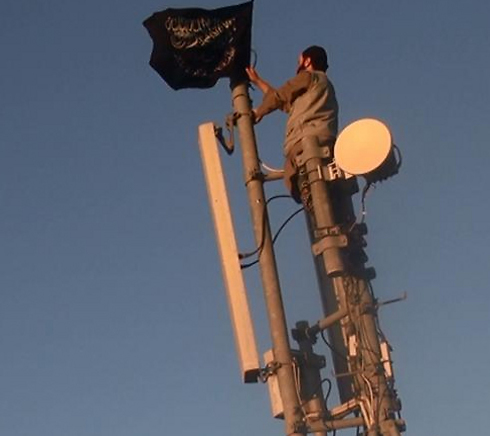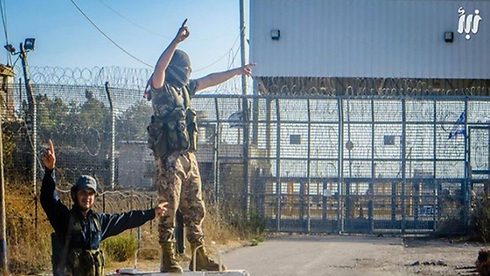Must Listen
- Satan's Ambition
- Counterfeit Christianity
- The Challenge Of Bible Christianity Today
- Three Men On The Mountain
- Greatest Single Issue of our Generation
- Bob Creel The Death Of A Nation
- Earth's Darkest Hour
- The Antichrist
- The Owner
- The Revived Roman Empire
- Is God Finished Dealing With Israel?
Must Read
- Mysticism, Monasticism, and the New Evangelization
- That the Lamb May Receive the Reward of His Suffering!
- The Spirit Behind AntiSemitism
- World's Most Influential Apostate
- The Very Stones Cry Out
- Seeing God With the New Eyes of Contemplative Prayer
- Is Your Church Doing Spiritual Formation? Pt. 1
- Is Your Church Doing Spiritual Formation? Pt. 2
- Is Your Church Doing Spiritual Formation? Pt. 3
- Is Your Church Worship More Pagan Than Christian? [excerpts]
- The Final Outcome of Contemplative Prayer
- The Conversion Through the Eucharist
- Frank Garlock's Warning Against Vocal Sliding
- Emerging Church Change Agents
- Emerging Church Spreading By Seasoning
- The Invasion of the Emerging Church
- Rock Musicians As Mediums (Excerpts)
- Rick Warren Calls for Union
- Does God Sanction Mystical Experiences?
- Discernment or Criticism?
- Getting High on Worship Music
- Darwin's Errors Pt. 1
- Rick Warren and Rome
- Why are There so Many Races?
- The Drake Equation
- Pathway to Apostasy
- Ironclad Evidence
- Creation Vs. Evolution
- The New Age, Occultism, and Our Children in Public Schools
- A War on Christianity
- Quiet Time
- The System of Babylon
- Is the Bible Gods Word?
- Mid-Tribulation Rapture?
- Churches Forced to Confront Transgender Agenda
- Ironside on Calvinism
- The Purpose Driven Church
- Contemplative Prayer
- Calvinisms Misrepresentations of God
- Babylonian Religion
- What is Redemption?
What Art Thinks
- The Coming of Antichrist
- The Growing Evangelical Apostasy
- Obama's Speech on Religion
- Be Ready
- Rick Warren is Building the World Church
- Spanking Children
- A Lamentation
- Worship
- Elect According to Foreknowledge of God
- Why Do The Heathen Rage
- Persecution and Martyrdom
- The Mystery of Iniquity (or Why Does Evil Continue to Grow?)
- Whatever Happened to the Gospel ?
- Quiet Time
- Divorce and Remarriage
- Ecumenism - What Is It?
- The Premillennial ? Pretribulation Rapture (2 Thessalonians 2)
- Right Now!!
- Misguided Zeal
- You're A Pharisee
- Contemplative Prayer
- NEWSLETTER Dec 2019
- NEWSLETTER Jan. 2020
- Fellowship With Your Maker
- Saved and Lost?
- Security of the Believer
- The Gospel
- NEWSLETTER April 2020
- The Believer Priest
- _Separation
- Elect According to the Foreknowledge of God
- The Preservation and Inspiration of the Scriptures
- Replacement Theology
- The Fear of the Lord
- Two Things That are Beyond Human Comprehension
- Knowing God
Pre-Millennialism
- PreTrib. Rapture
- Differences Between Israel and the Church
- 15 Reasons Why We Believe in the Pre - Tribulation, Pre-millennial Rapture of the Church
- The Pre-Tribulation, Pre-millennial Rapture of the Church
- Yet Two Comings of Christ ?
- Hating the Rapture
- Mid-Tribulation Rapture?
- The Pre - Tribulation Rapture of the Church
- The Error of a Mid-Tribulation Rapture and wrong Methods of Interpretation
- The Power of the Gospel
- Why We Believe in the Premillennial Pretribulation Rapture of the Church
Today's Headlines
- Sorry... Not Available

Locally Contributed...
Audio
- Satan's Ambition
- Counterfeit Christianity
- Three Things We All Must Do
- Two Coming Rulers
- Why No Joy
- Message Of Encouragement
- Greatest Single Issue of our Generation
- salvation.
Video
- One World Religion
- Atheism's Best Kept Secret
- Milk From Nothing
- Repentance and True Salvation
- Giana Jesson in Australia - Abortion Survivor - Pt. 1 & Pt 2
- Billy Graham Denies That Jesus Christ is the Only Way to the Father
- Emerging Church & Intersprituality Preview
- Israel, Islam and Armageddon 6 Parts
- Blasphemous Teachings of the 'emergent Church
- Megiddo 1 - the March to Armageddon
- It's Coming, the New World Order
- Creation Vs Evolution Part 1 of 4
- Creation Vs. Evolution Part 2 of 4
- Creation Vs. Evolution Part 3 of 4
- Creation Vs. Evolution Part 4 of 4
- Billy Graham Says Jesus Christ is not the Only Way
- Wide is the Gate
- A Debate: Mariology: Who is Mary According to Scripture?
- The Awful Reality of Hell
- Conception - How you are Born - Amazing
- Atheist's Best Kept Secret
- Why Kids are Becoming Obsessed With the Occult
- Searching the Truth Origins Preview 2
- Searching for Truth for Origens Preview 1
- Searching the Truth for Origins 3
- Emerging Church & the Road to Rome
- Another Jesus 1 of 7
- Another Jesus 3 of 7
- Another Jesus 4 of 7
- Another Jesus 5 of 7
- Gay Marriage is a Lie - to Destroy Marrriage
- Another Jesus 6 of 7
- Another Jesus 7 of 7
- Evolution Fact or Fiction - Part 1
- Evolution Fact or Fiction - Part 2
- Evolution Fact or Fiction - Part 3
- The Most Heartrending Abortion Testimony You ll Ever Hear, from a Former Abortionist
- Creation vs. Evolution
- A Lamp in the Dark: Untold History of the Bible - Full Documentary
- When the Trumpet of the Lord Shall Sound
Special Interest
- Will the Real Church Please Stand Up?
- Destruction of Damascus?
- Peace and Safety?
- The Emerging Church
- The Growing Evangelical Apostasy
- The State of the Church
- Child Sacrifice
- Outside the Camp
- The Church Walking With The World
- The Present Apostasy
- The World is to Blame
- How to Give Assurance of Salvation Without Conversion
- New Evagelicalism
- New Neutralism Ch. 1 - 3
- New Neutralism Ch 10-11
- New Neutralism Ch 12-13
- New Neutralism Ch 4 -6
- New Neutralism Ch 7 - 9
- The Danger of the Philosophy of New Evangelical Positivism
- Who Do Jehovah's Witnesses Say Jesus Is?
- A Dilemma of Deception: Erwin McManus 'Barbarian Way'
- Are We Fundamentalist
- Contemporary Christian Music Sways Youth to Worldly Lifestyles, Doctrinal Confusion
- The Seventh Commandment
- What will be Illegal When Homosexuality is Legal
- Christ Died on Thursday
- Military Warned 'Evangelicals' No. 1 Threat
- New Age Inroads Into the Church
- Over a Billion Abortions Committed Worldwide Since 1970: Guttmacher Institute
- The Old Cross and the New
- Is Pope Francis Laying the Groundwork for a One World Religion?
- The Goal is to Destroy all Culture and the Constitution
- E - Bomb the Real Doomsday Weapon
- The Eigtht Commandment
- Muslim Brotherhood Inside American Colleges
- Scholars Trying to Redefine Inerrancy
- In Jesus Calling: Jesus Contradicts Himself
- Jesus Calling Devotional Bible? Putting Words in Jesus Mouth and in the Bible
- How the Quantum Christ Is Transforming the World
- Creation Vs. Evolution: Could the Immune System Evolve?
- Cessationism
- Was Noah's Flood Global or Local?
- Isn't Halloween Just Harmless Fun?
- Rock Music and Insanity (Excerpts)
- Preview of the Coming of the One World Religion for Peace:
- Muslims Invoke the Name of Jesus?
- A Sin Problem Rather Than a Skin Problem
- Scientific Evidence for the Flood
- Another Step to Rebuilding the Temple - Holy of Holies Veil Being Recreated
- Darwin's Errors Pt. 1
- Eastern Mysticism
- George Muller's rules for discerning the will of God
- The Tract
- The Church and the World Deceived
- Ye Must Be Born Again
- The Call of Abraham
by YNet
August 29th, 2014
In a meeting with a delegation of the Armed Services Committee of the House of Representatives, Netanyahu said that 'just now an extension of al-Qaeda in the Golan Heights has kidnapped dozens of UN forces. We must take a joint position in order to defeat them.'
The IDF Northern Command is closely following the recent developments along Syria-Israel border, after Syrian rebel forces, including members of the al-Qaeda-affiliated Jabhat al-Nusra, which is considered more radical than Hamas, on Wednesday seized the Syrian side of the border crossing with Israel in the Golan Heights. The fate of the 43 UN Fijian peacekeeping troops kidnapped by the rebels in Quneitra is still unknown. Secretary-General Ban Ki-moon condemned the abduction on Thursday, and called for the immediate release of the troops. 
ISIS flag in the Syrian border
The prime minister added that, "we have common enemies - radical Islamist terrorists who are ruthless executioners, terrorizing people the people under their control." The only exception is a small zone in the northeast corner of the border, on the slopes of Mount Hermon, close to the Syrian Druze village of Al-Khader. Here too, however, the presence of the Syrian army has dwindled. Fijian Commander Brig. Gen. Mosese Tikoitoga said three vehicles filled with about 150 armed rebels had converged on the Fijian camp at about 7:30am Thursday. He said the rebels demanded the Fijian soldiers leave within 10 minutes and insisted they board the rebel vehicles. The Fijians were then taken by the rebels to an unknown location. He said he's been told they were later transported back to their original post. Aquino III, who was travelling south of Manila, told a crowd that the situation involving the Filipino peacekeepers was "stable." Brig. Gen. Domingo Tutaan said the rebels surrounded two encampments about 4 kilometers (2.5 miles) apart occupied by Filipino peacekeepers and demanded that they give up their firearms, but the peacekeepers refused. "This resulted in a standoff," he said, reading from a statement. However, "the potential for de-escalation is still positive," he said. The military leadership in the Philippines was in direct communication with the peacekeepers, he added. 
Al-Qaeda rebels celebrating near the Israeli border
